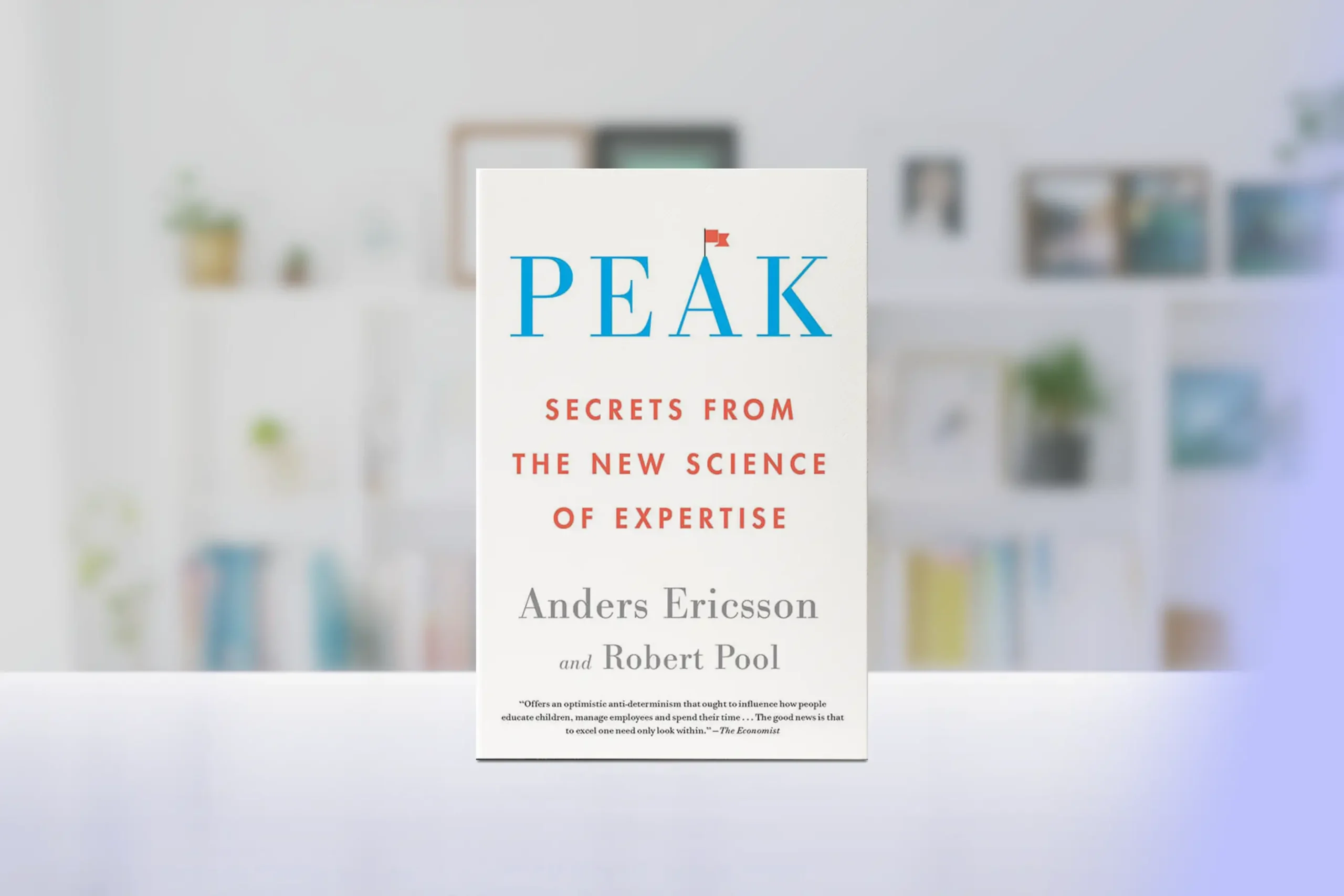Unlock the power within you—personal agency is the ability to intentionally shape your life. By embracing this superpower, you can move from reacting to creating, transforming challenges into opportunities and truly changing your life.
Inside this article:
Discovering the Superpower to Shape Life
What if the most powerful tool for transformation has been within your reach all along? Stanford psychologist Albert Bandura’s groundbreaking research on human agency reveals that our capacity to act intentionally and shape our circumstances is the fundamental driver of personal change. Studies consistently show that individuals with a strong sense of personal agency are 40% more likely to achieve their goals, experience greater life satisfaction, and demonstrate remarkable resilience in the face of challenges.
Yet many of us navigate life feeling like passengers rather than drivers—reacting to circumstances rather than creating them. The difference between those who transform their lives and those who remain stuck often comes down to one crucial factor: the recognition and cultivation of personal agency. When you truly understand that you have the power to influence your outcomes, everything changes.
Personal agency isn’t about controlling every external circumstance—that’s impossible and exhausting. Instead, it’s about recognizing your capacity to choose your responses, direct your attention, and take deliberate action toward the life you envision.
For deeper insights into understanding your authentic self and making aligned choices, explore Being True to Yourself: A Guide to Authentic Living, which provides practical strategies for living in accordance with your core values and genuine desires.

Understanding Personal Agency
Personal agency operates like an internal compass, guiding you toward intentional living rather than reactive existence. At its core, agency encompasses three fundamental components: intentionality (the ability to form plans and set goals), forethought (the capacity to anticipate outcomes and motivate action), and self-reactiveness (the skill to monitor and adjust your behavior based on feedback).
- Self-determination: Agency involves the freedom to choose one’s path and make decisions aligned with one’s values.
- Autonomous action: It’s about being able to act independently, without being controlled by external factors or individuals.
- Problem-solving: Agency requires the ability to assess situations, identify problems, and develop effective solutions.
- Strategic thinking: It involves recognizing patterns, anticipating outcomes, and making strategic choices to achieve desired results.
- Adaptability: Agency allows individuals to adapt to changing circumstances and adjust their plans as needed.
- Resilience: It involves the ability to overcome obstacles and challenges, even when facing opposition or adversity.
To build the foundational confidence needed for exercising personal agency, explore Building Confidence and Self-Esteem: Simple Steps for Lifelong Empowerment, which provides practical strategies for developing the self-belief that makes intentional action possible.
Key Takeaway: Personal agency is a learnable skill that starts with awareness. Pay attention to your language—are you choosing or being forced? Your words reveal your mindset, and changing your language is the first step to reclaiming your power.
Personal Agency is Your Game Changer
Personal agency isn’t just another self-help concept—it’s the foundational skill that determines the quality and direction of your entire life experience.
Research from the University of Pennsylvania shows that individuals with high personal agency report 65% higher life satisfaction, experience 40% less anxiety, and demonstrate significantly better physical health outcomes. In the workplace, studies from McKinsey Consultants show that employees with high agency are promoted 3x more frequently than their peers.
Most importantly, agency serves as your anchor in an increasingly unpredictable world. While you can’t control external circumstances, your response—how you adapt, learn, and pivot—remains entirely within your sphere of influence.
To amplify your sense of agency and see challenges as opportunities rather than obstacles, explore The Power of a Growth Mindset: Strategies for your Future Success, which reveals how your beliefs about your abilities fundamentally shape your capacity to create change.
Key Takeaway: Agency isn’t just a nice-to-have—it’s essential for life satisfaction, career success, and resilience. The data is clear: people with strong agency live happier, healthier, more successful lives.
The Four Pillars of Personal Agency
Building strong personal agency requires mastering four foundational elements that work together to create your capacity for intentional living and meaningful change.
Self-Awareness
Self-Efficacy
Self-Regulation
Self-Direction
1. Self-Awareness: The Foundation of Choice
Self-awareness serves as the bedrock of personal agency, providing the clarity needed to make conscious choices rather than operating on autopilot.
Developing Meta-Cognition: This involves observing your thoughts, emotions, and behavioral patterns without immediately reacting. When you notice yourself thinking “I always mess this up,” pause and ask: “Is this thought helping me?”
Identifying Your Values: Agency requires knowing what matters most to you. Spend time identifying your core values—not what others expect, but what genuinely resonates with your authentic self.
2. Self-Efficacy: Believing in Your Capacity
Self-efficacy is your belief in your ability to execute behaviors necessary to produce specific outcomes.
Building Mastery Experiences: Nothing builds self-efficacy like actually succeeding at something challenging. Start with manageable goals where success is likely, then gradually increase difficulty.
Reframing Setbacks: High-agency individuals don’t experience fewer setbacks—they interpret them differently. Instead of seeing failure as evidence of inadequacy, they view it as information for improvement.
For a deeper exploration of building unshakeable confidence in your abilities, consider reading “Mindset” by Carol Dweck, which illuminates how our beliefs about our capabilities fundamentally shape our reality.
3. Self-Regulation: Managing Your Internal State
Personal agency requires the ability to manage your emotions, thoughts, and behaviors in service of your long-term goals.
Emotional Regulation Strategies: Develop a toolkit for managing difficult emotions without being controlled by them. This might include deep breathing, cognitive reframing, or physical movement.
Impulse Control: The famous Stanford marshmallow experiment revealed that children who could delay gratification achieved better life outcomes decades later. This capacity is trainable at any age.
Environmental Design: Self-regulation isn’t just about willpower—it’s about designing your environment to support your goals. Structure your surroundings to make good choices easier.
4. Self-Direction: Charting Your Course
The final pillar involves your ability to set meaningful goals and create plans to achieve them.
Goal Setting with Purpose: Effective goals aren’t just about what you want to achieve—they’re about why it matters. Connect your goals to your deeper values and vision for your life.
Taking Consistent Action: Agency without action remains merely potential. Develop systems for consistent progress, even when motivation wanes.
To strengthen your ability to track progress and learn from your agency development experience, explore How Self-Reflection Fuels Personal Growth and Success, which provides essential techniques for the weekly reflection practice and helps you identify patterns that accelerate your growth.
Key Takeaway: Strong agency requires four foundations: knowing yourself (self-awareness), believing in your abilities (self-efficacy), managing your reactions (self-regulation), and taking purposeful action (self-direction). Master these pillars to unlock your full potential.

Your Personal Agency Development Plan
Transform your understanding of personal agency into real-world results with this comprehensive, step-by-step plan designed to build your capacity for intentional living over the next four weeks.
Essential Daily Practices
The Daily Choice Audit: For one week, track the choices you make throughout each day. Notice when you feel in control versus when you feel like things are happening to you. This awareness exercise often reveals surprising patterns and opportunities for increased agency.
The 10-10-10 Rule: When facing difficult decisions, ask yourself: How will I feel about this choice in 10 minutes, 10 months, and 10 years? This temporal perspective helps cut through emotional noise and connect with your deeper values.
Weekly Reflection Practice: Each week, ask yourself: Where did I exercise agency effectively? Where did I give my power away? What do I want to choose differently this coming week?
For those looking to dive deeper into the psychology of choice and decision-making, “Thinking, Fast and Slow” by Daniel Kahneman offers profound insights into how our minds work and how we can make better decisions in all areas of life.
4-Week Implementation Plan
Week 1 – Foundation Building: Complete a values clarification exercise. Begin daily choice awareness practice. Identify one area where you’d like greater agency. Set one small, achievable goal.
Week 2 – Skill Development: Practice the 10-10-10 framework for three decisions. Experiment with environmental modifications. Begin self-regulation skills through mindfulness. Take action toward your goal.
Week 3 – Pattern Recognition: Conduct weekly reflection on agency experiences. Identify common agency blockers. Develop strategies for managing these patterns. Connect with agency role models.
Week 4 – Integration: Assess progress and adjust approach. Set a more challenging goal building on Week 1 success. Create systems for long-term agency practices. Share insights with others.
24-Hour Challenge
Choose one decision you’ve been avoiding or one area where you’ve been operating on autopilot. Within the next 24 hours, take one concrete action that demonstrates your agency in this area. It doesn’t have to be perfect—it just has to be intentional and yours.
Self-discipline is the bridge between intention and action. Strengthen your ability to follow through on your agency commitments with Mastering Self-Discipline: The Key to Achieving Your Goals, which provides proven strategies for building the consistency needed to transform your life.
Key Takeaway: Start small, build systematically, and stay consistent. Agency develops through progressive action—begin with Week 1’s foundation and gradually expand your capacity to shape your life intentionally.
Start Transforming Your Life
To transform your life with personal agency, you can develop a strong internal locus of control, take ownership of your decisions, and cultivate skills and resources to achieve your goals. This involves identifying what you can control, taking proactive steps to improve your life, and embracing a growth mindset.
- Understand and Define Your Purpose: Reflect on your values, passions, and aspirations. Write down your purpose and revisit it often to stay focused and motivated. Let your purpose guide your actions and choices.
- Take Ownership of Your Actions: Recognize what you can control in your life and take responsibility for your decisions. Don’t blame external circumstances for your choices, and develop a sense of responsibility for your own health and well-being.
- Cultivate Skills and Resources: Develop abilities relevant to your goals through learning, practice, and feedback. Identify and leverage your existing resources, and seek support from mentors, coaches, or supportive communities.
- Embrace a Growth Mindset: Believe in your ability to learn and grow. Challenge limiting beliefs and replace negative self-talk with affirmations of your capabilities. Celebrate your successes, no matter how small.
- Develop Resilience: Learn to bounce back from setbacks and adversity. Focus on what you can control, learn from your experiences, and seek support from others when needed.
- Practice Self-Awareness and Self-Reflection: Pay attention to your thoughts, feelings, and behaviors. Reflect on your experiences, learn from mistakes, and practice gratitude to boost your well-being and reinforce your ability to find joy.
By embracing these strategies, you can cultivate a stronger sense of personal agency and transform your life in positive ways.
Continuing Your Journey
Personal agency is your superpower—the ability to consciously create your life rather than simply react to it. Every moment offers a choice point. What will you choose next?
For more resources on personal growth and development, explore our other articles and book reviews in the Personal Growth section of our website. You’ve got this!
Related articles
Ready to explore more ways to transform your life? These related articles will help you build on your personal agency foundation:
The Power of a Growth Mindset: Strategies for your Future Success
Learn how adopting a growth mindset amplifies your sense of agency by helping you see challenges as opportunities rather than obstacles.
How Self-Reflection Fuels Personal Growth and Success
Explore the crucial role of self-reflection in developing the self-awareness pillar of personal agency, with practical techniques for deeper self-understanding.
Building Resilience: Bouncing Back from Life’s Challenges
Strengthen your ability to maintain agency even during difficult times by developing resilience skills that keep you moving forward.
Further reading
“Atomic Habits” by James Clear
Perfect for the self-direction pillar; focuses on systems and consistent action
“Mindset” by Carol Dweck
Already referenced in the article; essential for self-efficacy and growth
“The Power of Habit” by Charles Duhigg
Supports self-regulation through understanding automatic behaviors
“Thinking, Fast and Slow” by Daniel Kahneman
Already referenced; crucial for decision-making and choice
“The Success Principles” by Jack Canfield
Comprehensive approach to taking responsibility and creating results





